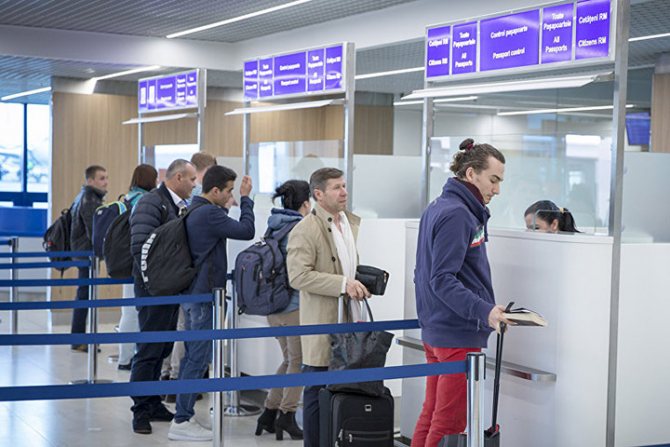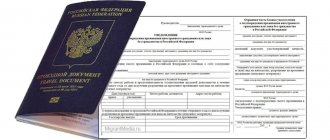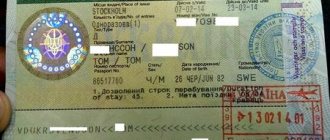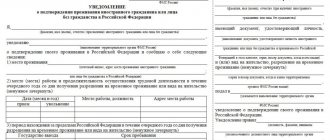Photo from dominik-schwarz.net Moving abroad - for work or permanent residence - may be associated with tax obligations in the country of which you are a citizen. “About Business” previously wrote that residents of Belarus who are leaving for another country need to know about this.
Now we are telling you what citizens of Russia and Ukraine who have moved or are planning to move abroad need to take care of. Ekaterina Popova and Olga Polozova, lawyers of the law firm REVERA, together with specialists from Henley&Partners, share the details.
— Many migrants, when moving abroad, do not take into account that they still have tax obligations to their country. Let’s figure out what points need to be taken into account by those who go to live and work abroad from Russia and Ukraine.
| Ekaterina Popova Lawyer REVERA | Olga Polozova Lawyer REVERA |
Memo for Russian residents
1. Submit a tax return for the previous tax year. According to the rules of Russian tax legislation, income tax must be paid by both tax residents and those who do not have such status but receive income in the country.
The main factor in determining tax resident status is staying in Russia for 183 days for 12 consecutive months. Individuals are required to independently declare income from the sale of property (if they have owned it for less than 3 years), from renting out property, from income outside the country (for tax residents), from income in the form of winnings and other income.
2. Check your tax status. Let’s imagine that a tax resident left for permanent residence in another country in July, and dividends were paid to him in the fall of the same year. In this case, he is still a tax resident of Russia (he spent more than 183 days a year in the country). Accordingly, he must pay tax on dividends in accordance with the requirements of Russian tax legislation (at a rate of 13%).
But an individual may qualify for tax residence in several countries, since each country has its own principle for determining tax residence status. For example, Switzerland recognizes as tax residents individuals permanently residing on its territory. According to the current legislation of this country, dividend payments are subject to withholding tax at the rate of 35%.
In cases where a person falls under the tax residency criteria of several countries, the question of where he still pays taxes is decided on the basis of double taxation agreements. The text of the agreements can be viewed here.
Just in case, it’s worth getting a Russian tax resident certificate in advance so that you have all the documents on hand. They may be needed when filing a tax return in another country.
Important: Russian citizens do not need to formally renounce their tax resident status - after the tax year has passed, they can simply not file a tax return in Russia.
Tax non-residents of the country may continue to have tax obligations in Russia, for example, to pay land tax (if they own a land plot).
3. Make sure there are no tax and other debts, as well as fulfill alimony obligations. If you are found to have debts on taxes, alimony or anything else, you may be restricted from traveling outside Russia in accordance with the law “On the procedure for leaving the Russian Federation and entering the Russian Federation.”

Photo from carsua.net
4. Sell a car/real estate and plan other major transactions. For tax non-residents, there are special income tax rates for, for example, the sale of an apartment (30% instead of 13%). With the loss of tax resident status, the right to tax deductions when selling movable and immovable property in Russia also disappears.
5. Open an account in a foreign bank and check your currency resident status . When moving to a new country, in most cases you will need to open a local bank account. If you moved in the second half of the year, you are still not only a tax, but also a currency resident of Russia and, accordingly, must comply with certain restrictions provided for by the provisions of the Law “On Currency Regulation and Currency Control”.
Amendments to this came into force in 2021, after which all Russian citizens are considered currency residents of the country, regardless of where they live. But if you spend more than 183 days outside the country in a calendar year, you are not required to notify the tax authorities (currency control authorities) about opening foreign accounts, nor are you required to provide information about the movement of funds on such accounts.
6. Correctly register your immigration status. Having a visa gives temporary permission to stay and work in the country.
A residence permit (RP) is a long-term visa that gives a foreigner the right to temporarily reside in the country if certain conditions are met. A residence permit can most often be extended or obtained permanent residence or citizenship on its basis. Citizenship is a permanent status that can be inherited. Along with citizenship, a person receives a state passport, as well as the right to live and work in the country.
Obtaining a residence permit, permanent residence or citizenship of another country is a complex process that requires serious preparation. Most often, the process of obtaining a new immigration status must begin in your country of residence.
We also note that visa-free entry into another country is not a basis for permanent residence and work abroad. For Russian citizens, for example, visa-free entry into 114 countries is provided (according to the latest edition of the Henley & Partners Passport Index). But this only gives temporary permission to enter the country and, most often, a number of restrictions are imposed on a person’s capabilities in the country.
7. Notify the migration authorities of the Ministry of Internal Affairs of Russia about obtaining a residence permit/long-term visa. Russians who have a residence permit or citizenship of another state are required to notify the Russian authorities about this. The deadline for submitting a notification to the migration authorities of the Ministry of Internal Affairs of Russia is 60 days from the date of receipt of the document.
For Russian citizens who, being outside the country, were unable to do this, the period is 30 days from the date of entry into Russia. There is criminal liability for concealing information about a new residence permit or citizenship (Article 330.2 of the Criminal Code of the Russian Federation). The law provides for punishment in the form of performing compulsory work for a period of up to 400 hours (one and a half months) and paying a fine in the amount of 200 thousand Russian rubles or equivalent to one year’s salary/income.
8. Pay attention to the legislation on inheritance and division of property. Different countries have their own inheritance rules. According to Russian legislation, real estate is inherited according to the law of the country of its location (registration), and movable property - according to the law of the country of the last place of residence of the testator. However, a foreign state may have a different position on this matter.
According to Russian family law, the division of property of spouses in the event of divorce is determined by the place of their last residence. If one of the spouses moves abroad (for example, to create a business), Russia is recognized as the country of the last joint place of residence.
As a general rule, Russian law will apply to family legal relations, including the possible division of property (including foreign business) in the event of divorce. If spouses move together, say, to the UK, then their family issues will be resolved within the framework of English law.
How to obtain permanent residence: algorithm for solving the problem
In order to obtain permanent residence in Russia for a citizen of Ukraine, he must strictly adhere to a certain algorithm of actions. It will be slightly different for those who enter the Russian Federation under the State Program and for those who are not its participants:
- fill out a migration card when entering the Russian Federation;
- register for migration. Upon arrival, within seven days you should contact the Central Internal Affairs Directorate of the Ministry of Internal Affairs at your place of residence (despite the permitted 90-day period of stay). This will be a signal to the migration authorities about the serious intentions of the Ukrainian citizen. During the same period, it is advisable to register with the consulate;
- obtain a temporary residence permit (TRP). The application must be considered within 60 days. Participants in the program for the resettlement of compatriots, highly qualified specialists with families, skip this stage.
- register at your place of residence;
- obtain a residence permit (residence permit) for 5 years. The application can be submitted one year after the temporary residence permit is received, and no later than 6 months before its expiration. The application review period is 6 months. Veterans of the Great Patriotic War and former citizens of the USSR are allowed to immediately apply for Russian citizenship, bypassing the stages of temporary residence permit and residence permit;
- obtain Russian citizenship after 5 years of residence on its territory. For several categories of citizens, a more simplified procedure for obtaining citizenship is possible: for those who have Russian roots;
- for native Russian speakers;
- for refugees;
- participants of the Program for Assistance to Voluntary Resettlement of Compatriots;
- for those who received education in the Russian Federation;
- married to a citizen of Russia.
Simplifications may relate to the length of stay, the need to obtain a temporary residence permit and residence permit.
First step: how to obtain a temporary residence permit for a citizen of Ukraine
To obtain a temporary residence permit in Russia, you should contact the consular office of the Russian Federation while still in Ukraine (you must pay 18 US dollars for the service (payment in hryvnia - 475 UAH).
You can also submit an application upon arrival in the Russian Federation. The state duty for issuing a temporary residence permit here is 1,600 rubles. (see payment receipt on the website https://guvm.mvd.rf/).
This permit allows not only residence, but also work without obtaining a patent, and is issued for three years (without the right of extension) according to the allocated quotas. However, there are several nuances that need to be taken into account:
- you cannot leave the Russian Federation for a period of more than 3 months (otherwise the permit will be revoked);
- employment must be only in the region in which the temporary residence permit was issued;
- availability of quotas. In 2021, a total of 110,880 quotas were allocated throughout the country;
Each region receives a certain amount, and if there are no quotas, permits will not be issued until next year. Participants in the program for the resettlement of compatriots go beyond quotas.
Obtaining a temporary residence permit in Crimea: standard procedure
In Crimea, the same set of documents is required as in other regions of the Russian Federation. Temporary residence permits are issued to foreigners in accordance with allocated quotas. In 2021, a quota of 1,500 people has been allocated to the peninsula.
How to obtain a residence permit in Russia for citizens of Ukraine
After the expiration of the first year of temporary residence in Russia (but no later than 6 months before the completion of the temporary residence permit), it is allowed to submit an application for a residence permit in the Russian Federation with the necessary papers (all Ukrainian-language documents must be translated into Russian and notarized), pay the state fee in the amount of 3500 rubles.
The residence permit is granted for five years with the right to extend for another five, the number of extensions is not limited.
To do this, the applicant must submit to the Main Department of Internal Affairs of the Ministry of Internal Affairs evidence of permanent housing and employment, as well as annually report on place of residence, work, income, departures from the Russian Federation (staying abroad for more than 6 months a year will lead to the cancellation of the residence permit).
Memo for residents of Ukraine
1. Resolve issues with the tax service. You must ensure that your tax return for the previous tax year is filed on time. According to the law on the income of individuals of Ukraine, resident taxpayers traveling abroad for permanent residence are required to submit a tax return no later than 60 calendar days before departure. The tax office will send the taxpayer a message about the amount of tax due. A certificate confirming the payment of tax or the absence of tax obligations must be submitted to the customs control authorities when crossing the border upon departure.

Photo from sputnik.md
Check your tax status to understand your tax residency.
Ukraine takes into account the following criteria for classifying individuals as its tax residents:
- Permanent residence in Ukraine
- Having close personal or economic ties with Ukraine (family, work, business)
To obtain the status of a tax and currency non-resident of Ukraine, you need to move your place of residence outside of Ukraine, while complying with the requirements for mandatory obtaining permission to leave Ukraine for permanent residence.
Tax and currency non-residents of Ukraine are exempt from many currency restrictions. Their income is taxed only if it was received from sources of origin in Ukraine.
2. Apply for permission to travel for permanent residence . A person who emigrates for permanent residence without the appropriate permit is considered an illegal migrant who has violated the rules for leaving the country and may be held accountable.
Procedure for traveling abroad for permanent residence:
- Submit an application and a package of documents to the regional authority of the State Migration Service (SMS) of Ukraine or the Ukrainian consulate abroad
- Receive a notification from the State Migration Service about a positive decision
- Deregister your place of residence in Ukraine
- Submit exit declarations and receive a certificate from the State Fiscal Service
- Receive an exit stamp on your permanent residence passport from the State Migration Service
- Leave Ukraine and register with the consulate in your country of residence.
You need to make sure that you do not have tax and other debts, and also fulfill your alimony obligations. If you have such debts, you may be restricted from leaving Ukraine in accordance with the law “On the procedure for leaving Ukraine and entering Ukraine for citizens of Ukraine.”
3. Issue a power of attorney before departure. If a non-resident takes part in a transaction for the purchase and sale of Ukrainian real estate, he must reside in Ukraine or make the transaction through a representative by proxy. Accordingly, if a power of attorney is not issued, when selling an apartment in Ukraine, he will have to come to the country in person.
4. Correctly register your immigration status in the country to which you are moving. Visa-free entry into another country is not a basis for permanent residence and work abroad. For citizens of Ukraine, for example, visa-free entry into 118 countries is provided (according to the latest edition of the Henley & Partners Passport Index). But this only gives temporary permission to enter the country and, most often, a number of restrictions are imposed on a person’s capabilities in the country.
If you are going to live and work in another country for a long time, it is logical to obtain a residence permit there. A residence permit can most often be extended or obtained permanent residence or citizenship on its basis.
Let us repeat that the difference between citizenship and permanent residence is an indefinite status that can be inherited. Along with citizenship, a person receives a state passport, as well as the right to live and work in the country.
You are going to live abroad Printable version
Moving to another country is a complex, troublesome and expensive matter, so it is worth approaching it with all the responsibility.
The procedure for obtaining permission to travel for permanent residence abroad
The procedure for obtaining permission to travel for permanent residence to another state from the Republic of Kazakhstan is regulated by the “Rule for the preparation of documents for travel outside the Republic of Kazakhstan for permanent residence”
Departure for permanent residence from the Republic of Kazakhstan is carried out with the permission of the territorial bodies of the migration police of the internal affairs bodies (clause 5 of the Rules for processing documents for leaving the Republic of Kazakhstan for permanent residence).
The procedure for obtaining permission to leave for permanent residence in another state from the Republic of Kazakhstan, as well as the list of documents required for this.
Applications to leave the Republic of Kazakhstan for permanent residence can be submitted by persons who have reached the age of 18, and those who are married - 16 years of age. Documents for children and citizens recognized by the court as incompetent are submitted by their legal representatives (parents, guardians, trustees).
Documents must be provided in person. Internal affairs bodies prohibit the acceptance of documents from intermediary legal entities and individuals (clause 7 of these Rules).
To leave for permanent residence outside the Republic of Kazakhstan in accordance with paragraph 7 of the Rules, citizens of the Republic of Kazakhstan personally or their legal representatives submit the following documents to the migration police:
- application - questionnaire;
- identity card and passport of a citizen of the Republic of Kazakhstan;
- an agreement on the payment of alimony, concluded in the manner prescribed by Chapter 22 of the Code of the Republic of Kazakhstan “On Marriage (Matrimony) and Family”, if family members of the person leaving permanently reside in the territory of the Republic of Kazakhstan, to whom he is legally obliged to provide maintenance. If an agreement is not reached, the person leaving is presented with a court decision to determine the amount of alimony in a fixed sum of money or a one-time payment of alimony, or to provide certain property on account of alimony, or to pay alimony in another way, or to establish the fact that the person leaving has no obstacles to leaving as provided for by law.
- certificate of de-registration and submission of military ID;
- conclusion of the guardianship and trusteeship authorities on taking into account the opinion of a child who has reached the age of 10 by parents or other legal representatives when making a decision to leave;
- when leaving for permanent residence of citizens of the Republic of Kazakhstan under 18 years of age, together with one of the parents (guardian, trustee) - notarized consent of the other parent living in the territory of the Republic of Kazakhstan. In the absence of the consent of one of the parents, the departure of a minor may be permitted through a judicial procedure.
- a copy of a document confirming payment of the state duty or consular fee.
Requesting other documents from citizens is not allowed (clause 7 of the Rules).
In cases where the applicant for some reason cannot receive such statements, the issue is resolved in court.
In accordance with paragraph 9 of the Rules, the decision to issue a permit to leave the Republic of Kazakhstan for permanent residence is made no later than 30 calendar days from the date of provision of all necessary documents.
Important: It should be borne in mind that obtaining permission to leave for permanent residence in another country does not mean automatic loss of citizenship of the Republic of Kazakhstan.
Where can I get permission to leave for permanent residence if a citizen is outside the Republic of Kazakhstan?
The issuance of the appropriate permit to citizens of the Republic of Kazakhstan who have left the Republic of Kazakhstan on temporary business and have expressed a desire to remain there for permanent residence is carried out by diplomatic missions or consular offices of the Republic of Kazakhstan abroad in agreement with the territorial internal affairs bodies at the last place of residence of the applicant in the Republic of Kazakhstan ( clause 10 of the Rules for processing documents for travel outside the Republic of Kazakhstan for permanent residence).
In this case, the following documents must be attached to the application:
- application form;
- identity card and passport of a citizen of the Republic of Kazakhstan, birth certificates of children under sixteen years of age;
- an agreement on the payment of alimony, concluded in the manner prescribed by Chapter 22 of the Code of the Republic of Kazakhstan “On Marriage (Matrimony) and Family”, if family members of the person leaving permanently reside in the territory of the Republic of Kazakhstan, to whom he is legally obliged to provide maintenance. If an agreement is not reached, the person leaving is presented with a court decision to determine the amount of alimony in a fixed sum of money or a one-time payment of alimony, or to provide certain property on account of alimony, or to pay alimony in another way, or to establish the fact that the person leaving has no obstacles to leaving as provided for by law.
- certificate of removal from military registration;
- when leaving for permanent residence of citizens of the Republic of Kazakhstan under eighteen years of age, together with one of the parents (guardian, trustee) - notarized consent of the other parent living in the territory of the Republic of Kazakhstan. In the absence of consent, the departure of a minor may be resolved in court;
- a copy of a document confirming payment of the state duty or consular fee.
In case of absence, loss or expiration of the identity card of a citizen of the Republic of Kazakhstan, an explanation is provided.
Renunciation of citizenship of the Republic of Kazakhstan
Renunciation of citizenship of the Republic of Kazakhstan is carried out on the basis of a voluntary expression of will. Issues related to renunciation of citizenship of the Republic of Kazakhstan are regulated by the Law of the Republic of Kazakhstan “On Citizenship of the Republic of Kazakhstan.”
When submitting documents on renunciation of citizenship of the Republic of Kazakhstan to the divisions of the migration service, the applicant is required to provide a receipt stating that he is familiar with the conditions and consequences of renunciation of citizenship of the Republic of Kazakhstan, and also undertakes to submit Kazakh documents to the Department of the Migration Service.
Internal affairs bodies request information about the applicant from the legal statistics and information bodies at the Prosecutor General's Office and its territorial divisions about being brought to criminal responsibility as an accused or about serving a sentence based on a court verdict.
In conclusions on renunciation of citizenship, the internal affairs body indicates the following information:
- about the presence or absence of unfulfilled obligations to the state or property obligations of the applicant, which are associated with the significant interests of citizens, state and other organizations;
- about bringing him as an accused;
- that his renunciation of citizenship of the Republic of Kazakhstan does not contradict the interests of state security.
Thus, if a citizen is brought to criminal responsibility as an accused or is serving a sentence under a court verdict, has unfulfilled obligations to the Republic of Kazakhstan, or if a person’s renunciation of citizenship is contrary to the interests of state security of the republic, then in accordance with Article 20 of the Law “On Citizenship of the Republic of Kazakhstan” he will be denied renunciation of citizenship.
You can familiarize yourself with the step-by-step procedure for renouncing citizenship, as well as learn about the timing of the service by following this link.
Upon renunciation of citizenship, a person has the right to withdraw his pension savings. To do this, he needs to contact the branch of the pension fund with which the pension agreement was concluded and provide the necessary documents. You can learn more about the withdrawal and transfer of pension savings by following this link.
The procedure for renouncing citizenship of the Republic of Kazakhstan is regulated by the following documents:
Law of the Republic of Kazakhstan “On Citizenship of the Republic of Kazakhstan”.
Law of the Republic of Kazakhstan “On Migration of Population”
Regulations on the Citizenship Commission.
Renunciation of citizenship of citizens living abroad
Citizens can also apply for renunciation of citizenship while living outside the Republic of Kazakhstan. Living outside of Kazakhstan in itself does not entail the termination of Kazakh citizenship, however, failure to comply with the established conditions for living abroad may lead to automatic loss of Kazakh citizenship.
Citizens of the Republic of Kazakhstan permanently residing abroad (that is, those who have been deregistered with the internal affairs bodies of Kazakhstan, who have received permission to travel abroad for permanent residence and who are registered with the Kazakh consular offices in the country of residence), submit an application for renunciation of citizenship to the name of the President of the Republic of Kazakhstan through Kazakhstan consular offices.
The following are attached to the application:
- application form;
- autobiography (compiled with one’s own hand);
- photograph measuring 3.5 x 4.5 centimeters;
- a copy of the applicant’s identity document;
- permission to leave for permanent residence, issued by the internal affairs bodies of the Republic of Kazakhstan;
- certificate of presence or absence of criminal record;
- copies of birth and marriage certificates (if available);
- a document confirming the possibility of obtaining foreign citizenship;
- document confirming payment of the consular fee;
- a notarized statement of consent to renounce the citizenship of the Republic of Kazakhstan and the absence of material and other claims from the applicant’s spouse or dependent persons living in the Republic of Kazakhstan, or copies of their death certificates, a court decision declaring the citizen dead or unknown absent.
When accepting documents, applicants are explained the legal consequences of terminating their citizenship of the Republic of Kazakhstan, and also the provision of Article 3 of the Law is explained, according to which a citizen of the Republic of Kazakhstan is not recognized as having citizenship of a foreign state, which is noted in the application form.
Applications on issues of citizenship in relation to persons under 18 years of age, as well as those recognized as incompetent, are considered at the request of their legal representatives, certified by a notary, and in other states - certified by a foreign institution, along with a copy of the child’s birth certificate (adoptive parents, guardians and trustees submit a copy of the decision of the local executive body of the Republic of Kazakhstan) or with a document certifying the identity of the incapacitated person.
When submitting an application to change the citizenship of a child aged 14 to 18 years, his consent is required, which must be expressed in writing and certified by a notary, and in other states - certified by a foreign institution.
Documents must be drawn up in the state or Russian languages, or in another language with a notarized translation into the state or Russian language attached.
A separate report is drawn up for each member of the applicant’s family.
Deadline for consideration of materials on renunciation of citizenship
The period for consideration of materials on applications for change of citizenship in local internal affairs and national security bodies, foreign agencies, the Ministry of Foreign Affairs, the Ministry of Internal Affairs and the National Security Committee should not exceed one month in each of these bodies. (clause 23 of the Regulations on the Commission on Citizenship Issues under the President of the Republic of Kazakhstan).
Result of consideration
As a result of consideration of the application, a certificate of renunciation of citizenship of the Republic of Kazakhstan (on paper) or a refusal to renounce citizenship is issued.










